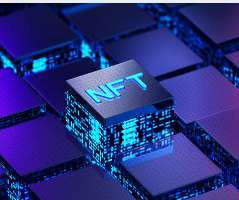NFT Trademark Filings Soar in 2021
LexBlog IP
DECEMBER 12, 2021
In 2021, trademark filings for non-fungible tokens (“NFTs”) reached a record high. The high volume trademark filings represent explosive interest in the new digital asset economy, digital art, and Web3. In contrast, 2020 saw only a paltry 15 separate NFT trademark filings. January 2021.












Let's personalize your content